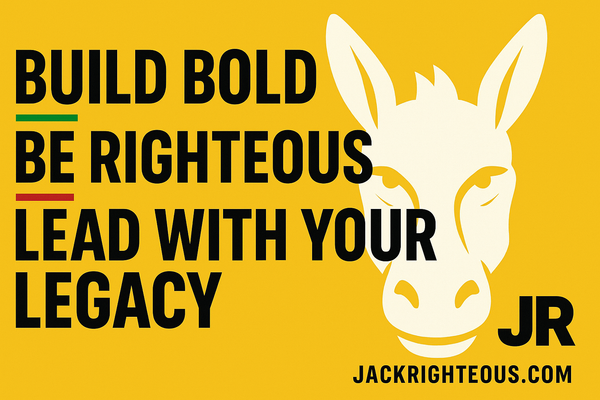Does AI Threaten Musicians? The Impact of AI on Music Creation
Gary Whittaker
Does AI Threaten Musicians?
At the end of 2023, the creators of neural networks made a revolution—AI began to generate music at the user's prompt. Although the quality of the generated music still cannot be compared to real studio recordings, musicians, songwriters, and labels sounded the alarm, deciding that they were coming to an end. Universal has asked streaming services to delete AI-generated music. More than 200 popular artists in the world, together with the RIAA, have signed an open letter demanding that AI technologies be abandoned when creating music.
In 2024, the tension escalated when major labels took legal action against popular AI music generators Suno and Udio. On June 24th, 2024, Universal Music Group, Sony Music Entertainment, and Warner Music Group collectively filed a lawsuit against these companies, alleging copyright infringement and unauthorized use of their artists' voices and music to train AI models. The lawsuit argued that the AI-generated content closely imitated the style, voice, and composition of many artists under their labels, potentially leading to confusion among listeners and harming the artists' intellectual property.
The situation is reminiscent of the emergence of cinema in the 20th century, when theatrical figures feared the disappearance of the theater and their profession and perceived a dangerous competitor with hostility. But despite the widespread use of "cinematography," the theater has not disappeared anywhere, and some theater actors and figures have found themselves in the cinema—for example, V. Meyerhold.
Progress cannot be stopped, and it is worth understanding that artificial intelligence in music creation is a useful tool, not a threat. According to surveys, about 60% of musicians already use AI or "smart plug-ins" in one way or another when creating music. These can be "hints" of ideas, songwriting, processing of finished tracks, or generating covers. And those who don't use it yet mostly do so due to a lack of access to technology or difficulties in mastering it. There are not so many convinced opponents of AI anymore, but some of them actively put "sticks in the wheels" for innovators like Luddites and unleashed a real "war with machines" instead of profiting from the situation and increasing their earnings.
Let's look at the advantages of using AI for musicians.
For aspiring musicians and songwriters, AI allows exploration of different musical styles, experimentation with them, mixing, creating new styles and genres, and studying the structure of music and songs. This is a kind of school for an aspiring author and musician.
For experienced musicians, AI can suggest interesting moves, hooks, and choruses. They can use AI hints as references to create their hits. They can also quickly create and test demos of their songs on the audience, choosing the most successful option. AI also allows you to "invent" new instruments and synthesize unusual sounds.
For former musicians who, due to age or health reasons, can no longer play instruments, AI returns the opportunity to do what they love.
AI can even "resurrect" long-dead idols, and fans can hear new songs performed by them.
For songwriters, AI speeds up and reduces the cost of arranging and implementing their ideas, allowing them to use different voices and instruments—for example, a symphony orchestra and choir, which are inaccessible to them or are too expensive.
AI can create songs in the style and with the voices of specific artists, and they will be able to release, to the delight of fans and producers, not one album every few years, but several albums a year.
Fans will be able to create covers of songs or songs with the voices of their favorite artists, and artists will be able to receive royalties for creating and using this music.
In the near future, AI will work together with the author and the musician and not just generate tracks based on his text hint. Services are already actively introducing the possibility of voice input. You can use your own music melodies, voice, and chords.
An AI trained on the best music of the past will increase the amount of good music in the world.
AI returns to humanity the lost interest in music thanks to the opportunity for everyone to become its creator.
AI finally brings the situation to a balance—creating music and promoting artists is very expensive now, but listeners are not ready to compensate for these costs. They pay very little money for streaming, and most musicians suffer losses. Now creating a track will either not be such an expensive task and may pay for itself.
AI will be useful, but it will never replace live musicians, since music is not enough for listeners. They are interested in the personality of the artist, his charisma, biography, communication with him on the Internet and at concerts, autographs, the history of song creation, a lively voice, energy, intonation. AI will not be able to give them all this. Therefore, the musicians are not in danger.
Ready to Launch or Level Up Your AI Music Journey?
🔹 Start Here – The Suno AI Creator Guide:
https://jackrighteous.com/pages/suno-guide-getting-started
🔹 Learn to Brand with Sound – GET JACKED Into Suno Branding:
https://jackrighteous.com/pages/start-ai-music-branding
🔹 Unlock the Full Anthem Path – GET RIGHTEOUS System Access:
https://jackrighteous.com/pages/get-righteous-anthem-guide
(Requires one of the following:
– https://jackrighteous.com/products/get-jacked-full-pro-kit
– https://jackrighteous.com/products/get-jacked-pro-ai-music-kit
– https://jackrighteous.com/products/sanctuary-digital-download-support-the-album-build)
